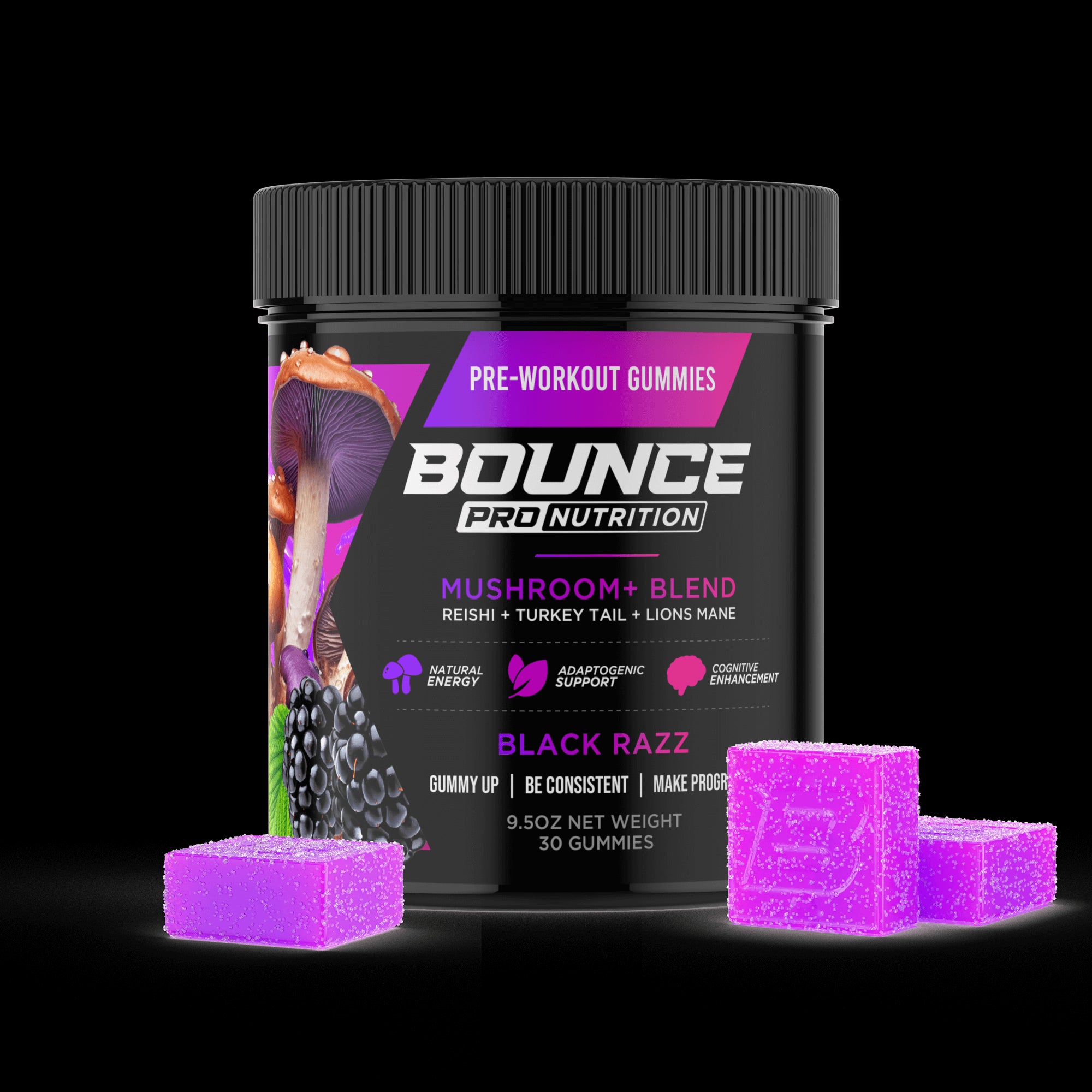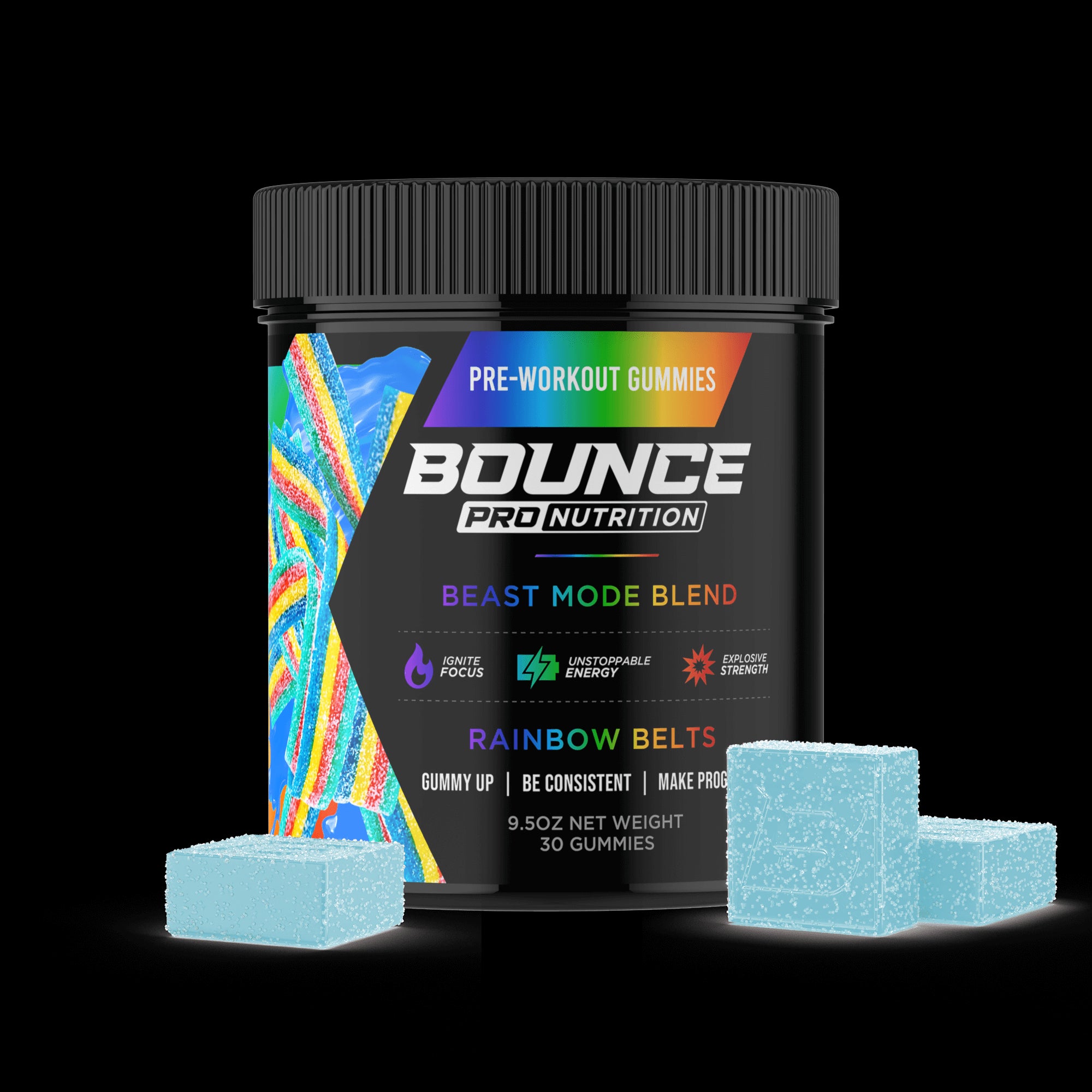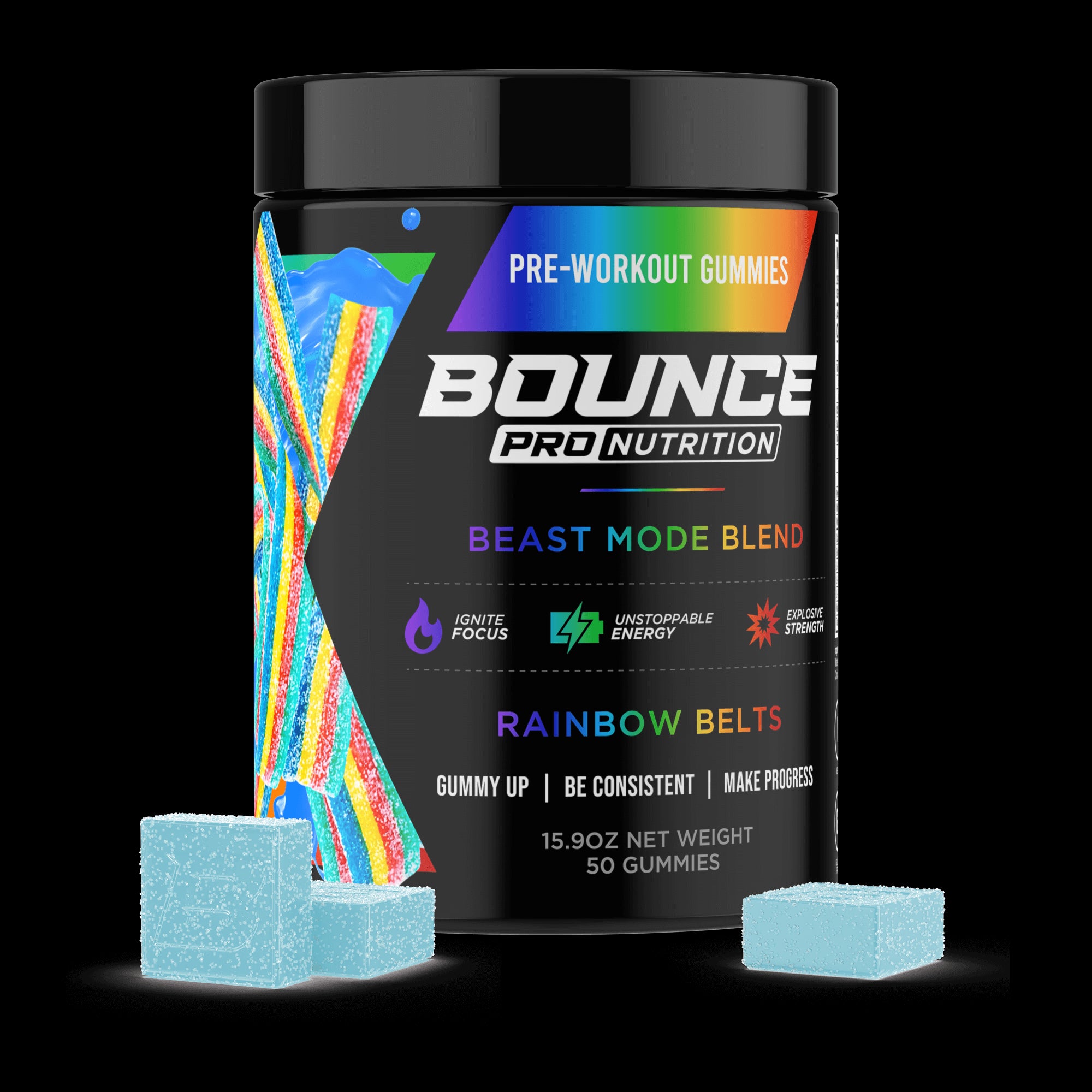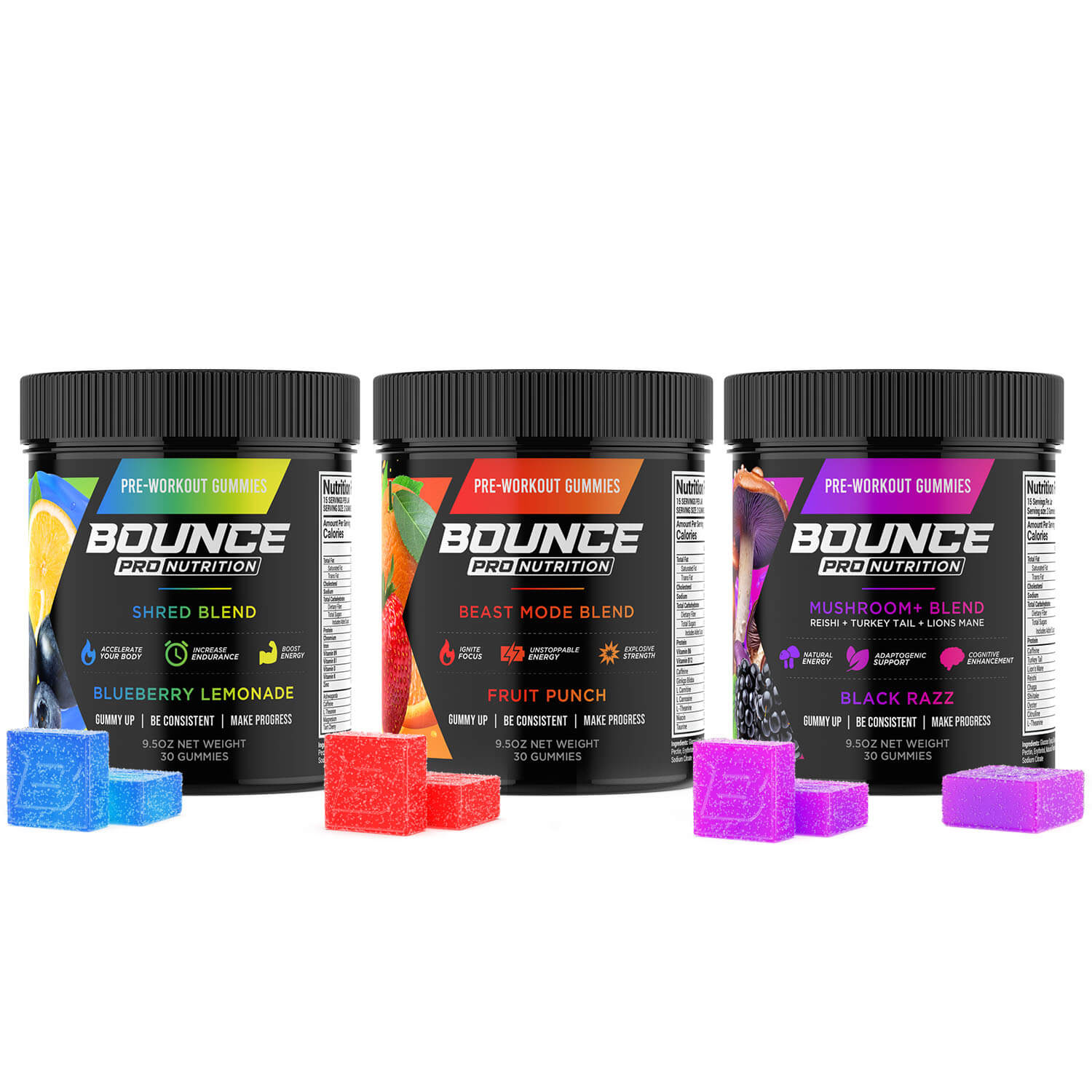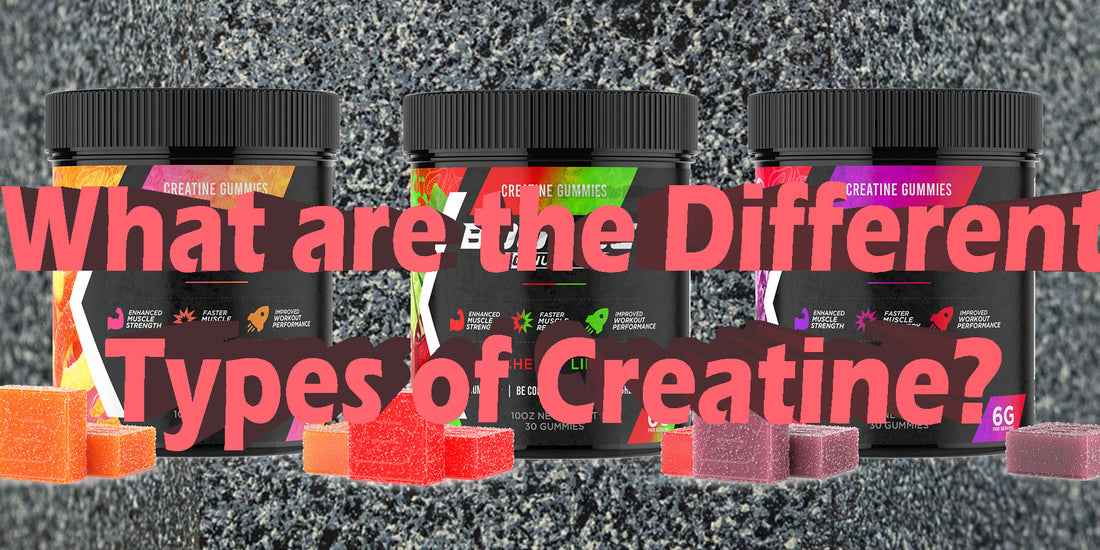Creatine is a naturally occurring compound found in small amounts in certain foods and is also synthesized in the human body. You see, creatine has a crucial part in the production of adenosine triphosphate (ATP), which is the primary energy currency in cells, especially in muscle cells.
Creatine supplementation has been popular among athletes and those seeking to enhance their physical performance for years, particularly in high-intensity, short-duration activities like weightlifting, sprinting, and other power sports.
TO BUY CREATINE GUMMIES CLICK HERE
Understanding the Different Types/Forms of Creatine Available to Try
Various types/forms of creatine supplements are available, each with its own characteristics and purported benefits. So, here are some of the most common types:
- Creatine Monohydrate: This is the most researched form of creatine and is generally considered the gold standard. It consists of a creatine molecule and one molecule of water. It’s also a combination of three amino acids: arginine, glycine, and methionine. Most scientific studies on creatine's effects on performance have used this form. It's also the most cost-effective.
- Creatine Phosphate (Phosphocreatine/PCr): Creatine phosphate is a naturally occurring organic compound (formed from the amino acids arginine, glycine, and methionine and is synthesized primarily in the liver) that serves as a rapidly mobilizable reserve of high-energy phosphate in skeletal muscle and the brain. It's involved in the storage and supply of energy, particularly for short bursts of ATP during high-intensity activities such as sprinting or lifting weights. The reaction is as follows: ADP + Creatine Phosphate ⇌ ATP + Creatine. However, there is limited evidence suggesting it's more beneficial than creatine monohydrate.
- Creatine Ethyl Ester: This form of creatine is esterified, meaning it has an ester group attached. The idea behind this modification is that it would improve the compound's ability to pass through cell membranes, thereby enhancing its absorption into muscle cells. In theory, this would lead to greater increases in muscle creatine content, potentially improving performance and muscle growth. Proponents claim it has better absorption rates and a longer half-life in the body, although research is inconclusive.
- Creatine Hydrochloride (HCL): This form is bound with hydrochloric acid and is claimed to have better solubility and absorption., not to mention, possibly reduced gastrointestinal side effects like bloating or cramping. However, definitive evidence supporting these claims over creatine monohydrate is limited.
- Buffered Creatine (Kre-Alkalyn): Kre-Alkalyn is a patented form of creatine monohydrate that has been buffered to resist changes in pH. The buffering process is said to make the creatine more stable in stomach acid, potentially increasing its absorption and effectiveness. Traditional creatine monohydrate can convert to creatinine, a waste product, when it encounters acidic environments like stomach acid or certain liquids. Kre-Alkalyn aims to minimize this conversion, theoretically making more creatine available to be absorbed into the bloodstream and, ultimately, taken up by muscle cells. By stabilizing the pH of creatine, a person could take lower doses and experience fewer side effects, which some people report when taking regular creatine monohydrate. Scientific evidence supporting these claims is limited.
- Micronized Creatine: This is essentially creatine monohydrate that has been processed to reduce the particle size. The smaller particles are thought to improve solubility and absorption, although the overall effects are generally similar to regular creatine monohydrate.
- Creatine Malate: This form binds creatine to malic acid, which is involved in the cellular energy cycle. It's thought to offer better water solubility but lacks substantial evidence to prove it's more effective than creatine monohydrate.
- Creatine Citrate: Creatine is bound to citric acid in this form. It's more soluble in water than creatine monohydrate but also contains less creatine by weight.
- Creatine Nitrate: This is creatine bound to a nitrate molecule. It’s touted for its better solubility and the potential benefits of nitrates (which can expand blood vessels). However, it's generally more expensive and not much more effective than creatine monohydrate, according to current research.
- Creatine Magnesium Chelate: This form binds creatine to magnesium, which may improve its absorption and reduce its conversion to creatinine. Still, research on its effectiveness compared to creatine monohydrate is limited.
- Creatine Pyruvate: This combines creatine with pyruvic acid, another compound involved in the energy cycle. Some studies suggest it could be more effective at increasing plasma creatine levels than creatine monohydrate, but more research is needed.
- Creatine Gluconate: This form attaches creatine to a molecule of glucose, with the idea being that the glucose will aid in more efficient delivery to the muscles. Research is limited though on this form.
- Effervescent Creatine (Liquid Creatine): This form is pre-dissolved in water and is often sold in bottles. However, creatine is known to degrade over time in liquid, so this form is generally considered less effective. Essentially then, it's mainly designed for palatability and hence, doesn’t offer significant performance advantages.
Which Creatine Type/Form Will You Choose?
When deciding on which form of creatine to use, it's essential to consider factors like solubility, dosage, price, and potential side effects. And, remember that while various forms of creatine are available, creatine monohydrate remains the most studied and generally the most recommended form.
Still, if you're considering taking creatine, consult with a healthcare provider, especially if you have pre-existing medical conditions or are taking other medications.









